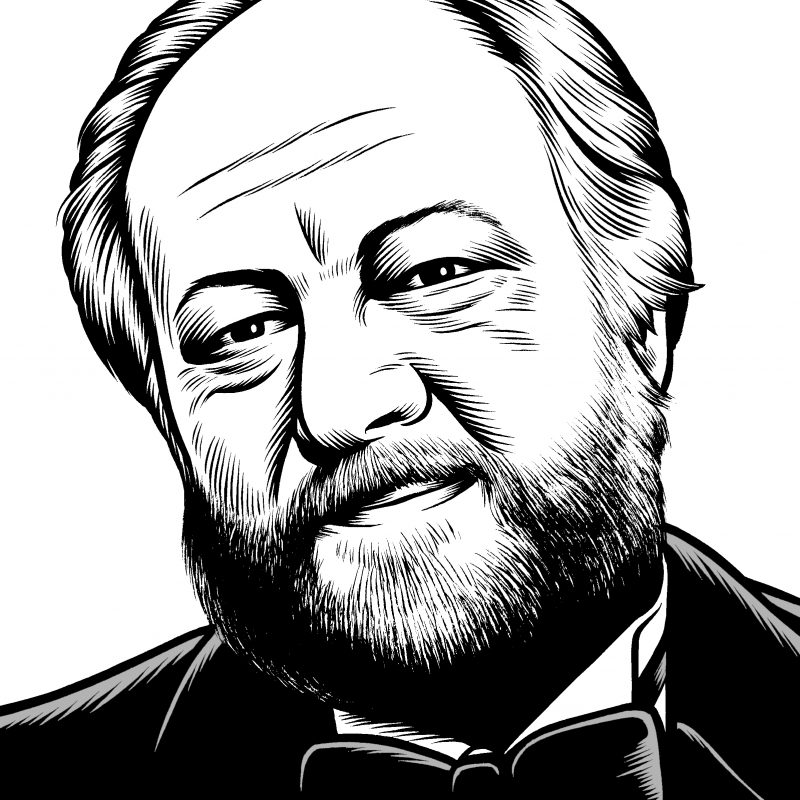Ricky Jay, a dear friend of his once observed, can’t remember anything that’s happened after 1900. This isn’t a commonly noted problem for someone born in 1948 (or someone born around 1948, since, like so many of the basic facts of Jay’s life, it’s not entirely clear what is true and what isn’t). The sleight-of-hand artist, author, actor, and curator isn’t just conversant in the minutiae of earlier eras. In an ideal universe, he admits, he might have inhabited the eighteenth century—although he doesn’t see it as dreadful that he’s found himself straddling the twentieth and twenty-first.
Ricky Jay’s natural home is the world of deception—of conjurers and con men, of illusion and the art of the confidence game. With a simple deck of cards, he can perform unparalleled acts of prestidigitation. He is a direct descendant of sleight-of-hand masters Dai Vernon and Charlie Miller. Early on, however, his fame grew out of a wild signature pose: wielding cards as weapons. Jay could throw cards for speed (90 miles per hour) and distance (190 feet) and, up close, could pierce watermelons. He was also an obsessive collector of arcana from the history of magic, weaving long-forgotten tricks and patter into his act, then writing about his discoveries at length, in one-of-a-kind volumes such as Learned Pigs & Fireproof Women (1986) and, more recently, Celebrations of Curious Characters, a collection of forty-five short essays he first produced for NPR.
Jay’s more recent renown, however, might come from film and television. Thanks largely to David Mamet, a longtime friend and collaborator who first cast him in House of Games (1987), Jay developed a parallel career as an actor. His roles have included a classic James Bond villain (techno-terrorist Henry Gupta in Tomorrow Never Dies), a PI schooled in magic lore (Last Days), and a narrator whose syntax and style seem lifted straight out of a Ricky Jay tale (Magnolia). He was, for its inaugural season, a central part of the HBO series Deadwood, both as a writer and an actor (in the role of card dealer Eddie Sawyer).
In person, Jay seems immune to an interviewer’s workaday concerns. He’s hopeless with dates. He’s hazy on personal details. When we met in Los Angeles last year—early spring, at a small Japanese restaurant in the Bel Air hills near his home—there was always the sense that the facts were only part of the point. Listen to his stories, about gamblers and magicians and cheats, and you’re led into a world where true fictions feel like the way things might really be.
—Greg Buium
I. “THERE WASN’T MUCH OF...
You have reached your article limit
Sign up for a digital subscription and continue reading all new issues, plus our entire archives, for just $1.50/month.
Already a subscriber? Sign in





